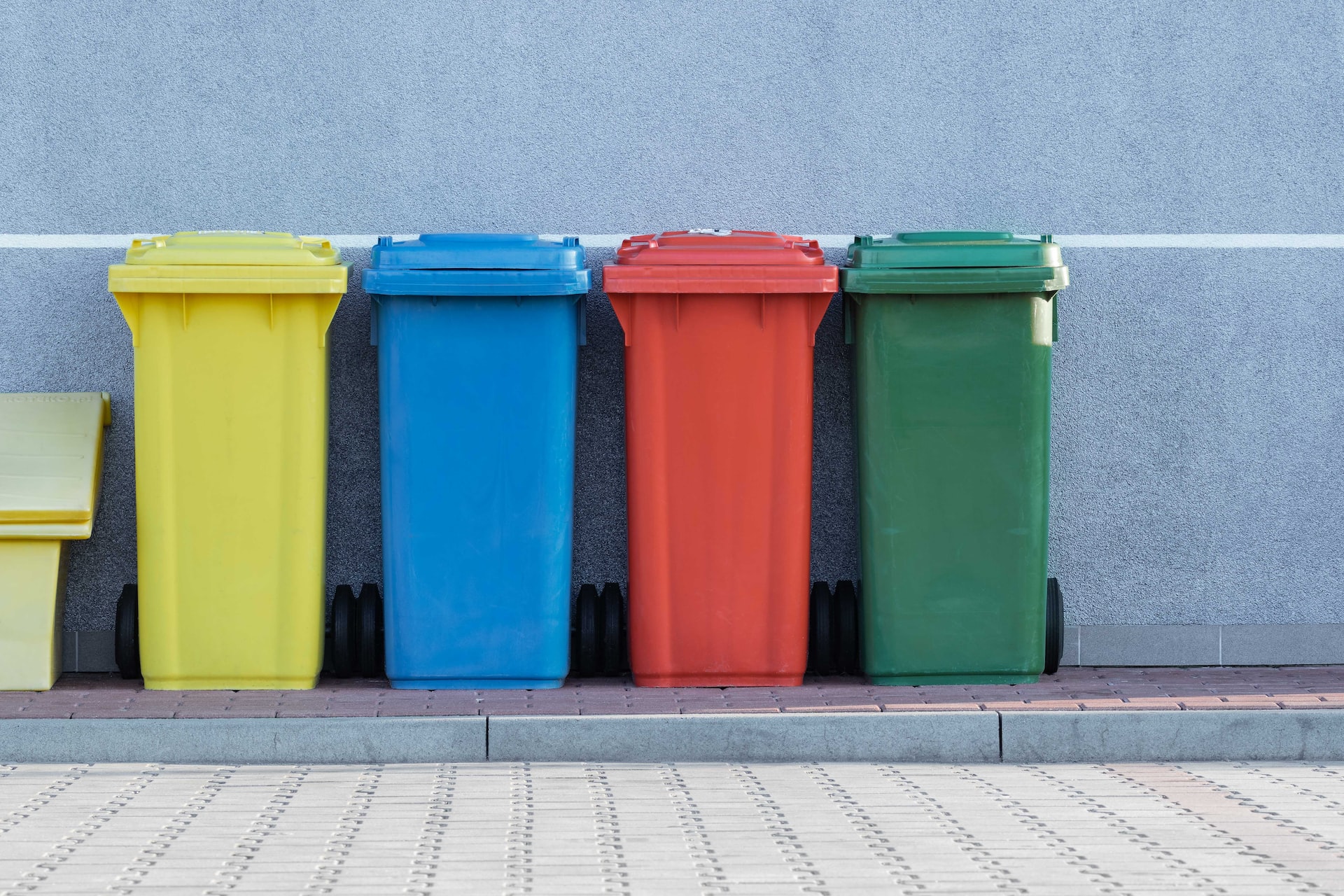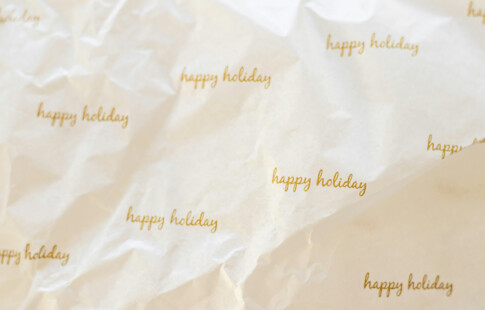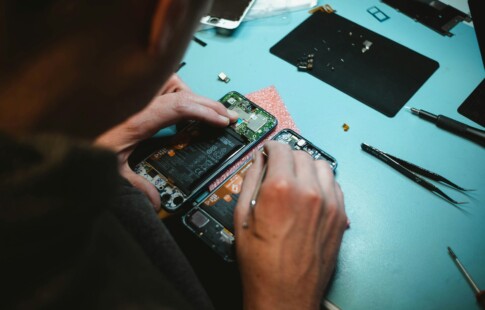
12 Tips for Recycling at College
We are reader-supported. When you buy through links on our site, we may earn affiliate commission.
Going to college is exciting. For many students, it’s the first time they’ve lived away from home, which brings new responsibilities like managing their own household waste. Do you want to live sustainably and ensure a greener future? Of course you do. Here are 12 tips for recycling at college.
- Find the Campus Recycling Bins
Make it a point to find the recycling bins at your school. Some common locations include the library, cafeteria, sports arenas and dorm common areas.
If you can’t find the bins, ask someone who’s familiar with the campus where they’re located. That way, you can plan to toss your recyclables after lunch or between classes instead of hanging on to them.
- Get a Bin for Your Dorm
Unless you want to do the walk of shame and throw 50 aluminum cans in the public bin, get a recycling container for your dorm. It can be anything from a regular trash can to a cardboard box. This is also a good solution if your university doesn’t have recycling bins available or if they fill up quickly.
- Locate a Recycling Center
When your bin is full, take it to a local recycling center and sort it yourself. This is a great way to get outside and meet other people interested in sustainable living. It also gives you an idea of the sheer amount of waste people generate, and might inspire you to find alternatives for single-use items.
For example, instead of buying individual bottles of coffee, try making your own at home. You’ll probably save money and you can make the coffee exactly to your liking. Or, buy a bar of shampoo — yes, that’s a thing — rather than the kind that comes in a bottle, or toothpaste tablets in a glass jar instead of toothpaste from a single-use tube.
- Rent Your Textbooks
Gone are the days of shelling out hundreds of dollars for a stats manual you’ll never even read. If you don’t want to purchase a 10-pound textbook that will forever gather dust, rent it online or from the library. It’s usually a lot cheaper than buying the book.
Alternatively, see if there’s a digital version you can read on your phone or laptop. Electronic versions are also handy because you can write all over them without consequences. You cant do that with a paper book!
- Bring Your Own Cup
Sure, you might stand out at parties, but in a good way. Bring a reusable cup to public events, coffee shops and the cafeteria. You’ll save a lot of paper and plastic. Plus, some places offer discounts to people who bring their own container.
If you do end up buying a single-use cup, rinse it out and recycle it when you’re done.
- Get a Reusable Straw
To go along with your reusable cup, why not pick up a drinking straw that you can sip from for a lifetime? Using plastic is a fleeting trend that just recently came into being and is rapidly going out of style.
Plastic straws have only been around since the 60s, but metal straws have existed since at least 3000 BCE, with the first one being discovered in a Sumerian tomb. On the tomb was a picture of two men drinking beer through the straw, which was made of gold. What a life!
Some options for reusable straws include steel, bamboo and glass. You can use a small pipe cleaner to wash them. And, who knows? Maybe archeologists will unearth your favorite straw thousands of years from now.
- Buy Less Stuff
Aside from the reusable items that will last you a long time, evaluate your purchases carefully. Where will that plastic bobblehead be a year from now? Do you really need a set of fake pumpkins to decorate your dorm for Halloween, or could you buy real ones instead?
Remember that you’re probably going to move when you graduate, or even sooner than that. If you cut down on the amount of stuff you accumulate in your dorm, it will be easier to pack up all your belongings, as well as a lot less wasteful.
- Donate Unwanted Items
If you went ahead and bought the fake pumpkin set, that’s relatable. But give it to someone else who’ll appreciate the decor when it wears out its welcome. See if there’s a donation box on campus where people can drop off unwanted items. Or, sell it online or take it to the thrift store.
- Purchase Secondhand Goods
While you’re at the thrift store, why not see if you can breathe new life into a long-forgotten set of dishes or silverware? You can usually find used furniture, clothes and jewelry for discounted prices at secondhand shops, which is great if you’re spending money on tuition and textbooks.
Despite their hand-me-down status, many items at the thrift store are high quality, and just end up on the shelves because people are moving or making space.
- Use Refillable Pens or Wooden Pencils
Think about how many plastic pens end up in landfills. They’re useless once they run out of ink, since they weren’t designed to be refilled.
Although there are programs for sending in used pens and mechanical pencils to be recycled, most people have never even heard of such a thing, and they toss them in the trash without a second thought. It’s unlikely you’ll have a pen-recycling bin at the college.
Wooden pencils and refillable pens are a great alternative. Yes, there is the slight inconvenience of sharpening them or putting in more ink, but that’s a pretty minor obstacle to their use. You’ll save so much plastic from ending up in the ground.
- Shop With Reusable Bags
This is an excellent way to cut down on your single-use plastic consumption. Buy a few canvas bags to use for picking up groceries, and keep them in the car so you don’t forget to take them with you.
Some stores offer reusable bags at checkout. Depending on where you live, plastic shopping bags might not even be available. You can avoid paying for paper bags in the checkout line by bringing your own reusable totes. Plus, you can use them to carry books or food around campus.
- Move Sustainably
Most likely, you’ll move away when you graduate. To make the transition simpler and more sustainable, you can ask grocery stores if they’ll give you cardboard boxes. This saves money and cuts down on paper waste.
Then, instead of using bubble wrap, you can pack your breakable items in with your clothes, blankets and towels to cushion them. If you need to make more than one trip, just bring the clothes or blankets back with you to wrap the next round of items. It’s a much more efficient way to pack.
Recycling at College and Beyond
Hopefully, the sustainable habits you create in college will transfer over to the rest of your life. By making small changes such as choosing reusable products, buying secondhand items and recycling the things you can’t reuse or donate, you’ll make a difference in the future of the planet.
Share on
Like what you read? Join other Environment.co readers!
Get the latest updates on our planet by subscribing to the Environment.co newsletter!
About the author
Maria Visser
Maria serves as the Assistant Editor of Environment.co. A true foodie and activist at heart, she loves covering topics ranging from veganism to off grid living.





